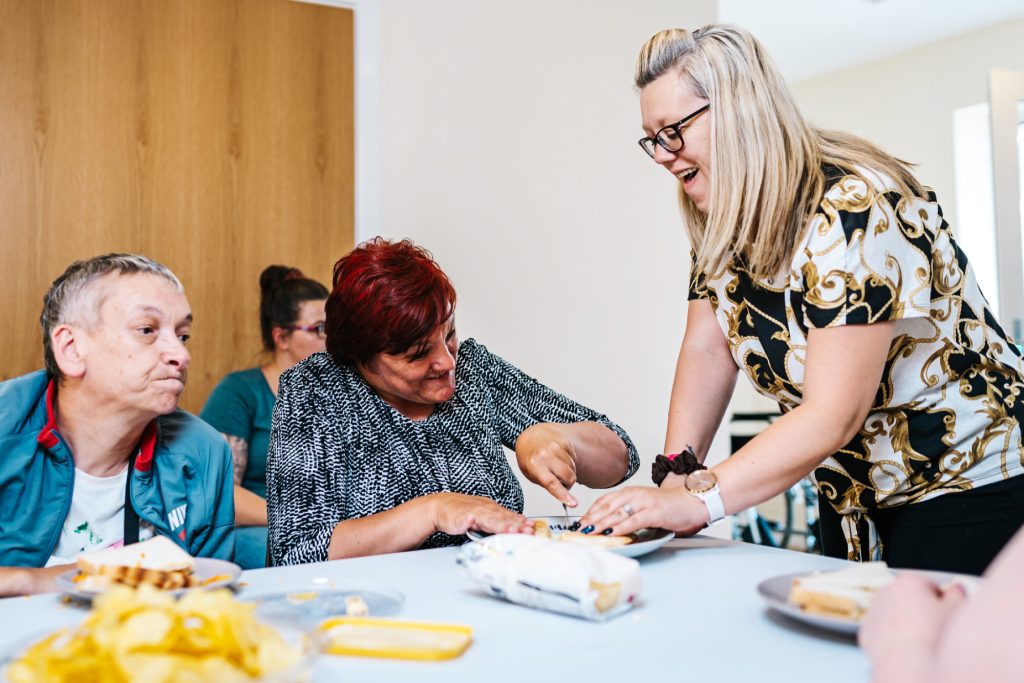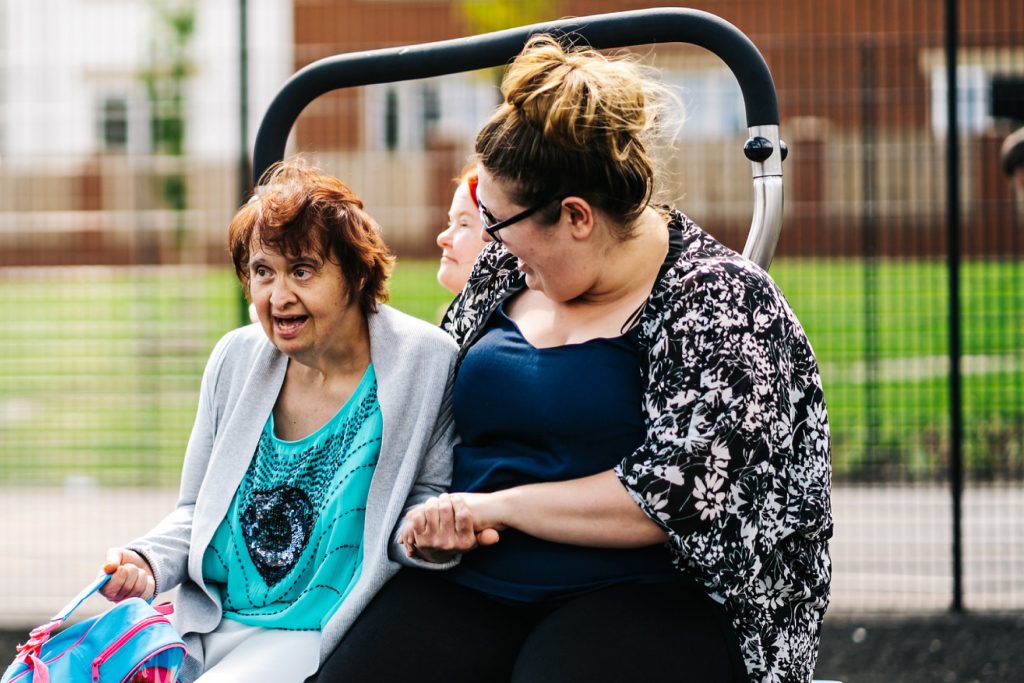
to making a difference
We’re looking for compassionate and dedicated people to join our care team. Whether you have experience in care or are just starting out, you will find unparalleled support, training and guidance to help you establish and progress your career in care.
Support that changes lives
Progression & development
Support & well-being
Rewards & recognition
Experience not essential
Live Care roles
Learning at Lifeways
At Lifeways, we are committed to the ongoing development of our staff. Through comprehensive inductions, refresher training, and specialist development programs, we ensure you have the knowledge and skills to make a positive difference. We believe in building strong teams by selecting individuals who embody the right values and behaviors, helping them to reach their full potential with continuous support and encouragement.


Career Progression at Lifeways
Career growth at Lifeways is not just a possibility; it’s a promise. Watch Brooke’s inspiring journey from Support Worker to Team Leader in just two years here. Whether you’re starting fresh or seeking a new career challenge, we’re here to support your ambitions every step of the way.

FAQ's
The day-to-day job of a support worker differs depending on the needs of the person they are supporting. This can include helping people to carry out their daily tasks to take care of themselves, teaching new skills, providing emotional support, and ensuring they are living a fulfilled life.
The role is primarily focused on enabling and supporting people to live their lives as independently as they can. At Lifeways, we support people with a diverse range of needs, including learning disabilities, autism, physical disabilities, acquired brain injuries and mental health needs.
As a support worker, you may find yourself working in a number of settings. You may be expected to work in people’s homes, in health and social care settings such as supported living services or care homes, and out in the community.
There are many roles and responsibilities of a support worker, including:
- Providing physical support which may include helping with household tasks and personal care.
- Providing emotional support for an individual and their families.
- Supporting and helping with health care needs, including routine checks or administrating medication.
- Encouraging and supporting the development of personal skills through hobbies and interests.
- Teaching life skills, such as shopping, using public transport and paying for bills.
- Working with other healthcare professionals to ensure that all care needs meet the highest possible standards.
Support workers also help the people they support to form meaningful connections. This could be by aiding them in their hobbies and interests, connecting them with suitable community groups, enabling them to attend college or encouraging them to develop a new life skill such as cooking or money management. To achieve this, understanding how the person communicates and their likes and dislikes is an important part of the job.
Being a support worker can be a very rewarding job. Even though the role can be hard and often challenging, making a positive difference to someone’s life and helping them become more independent brings feelings of accomplishment and satisfaction. It’s a great career choice for those who enjoy a varied job role and lots of interaction with others.
Some of the best parts of the job are sharing new experiences together, creating new memories and celebrating successes. You’ll enable people to overcome their fears and challenges whilst helping them to build confidence and self-esteem.
There are certain skills that are beneficial to have when working as a support worker, for example:
- An interest in helping other people, regardless of their condition.
- The ability to communicate clearly and sensitively when talking to people and their families.
- Good listening skills.
- Great problem-solving skills and the ability to adapt and act accordingly to situations.
- Good time management skills to be able to support the needs of multiple people.
- The ability to keep up with changing standards and codes of conduct in the social care sector.
- The ability to work both alone and as part of a team.
- A high level of patience and emotional resilience.
- Being empathetic towards everyone.
- The ability to make good, positive relationships with people and their families.
- The ability to communicate with other healthcare professionals.
- Great verbal and written communication skills.
- A non-judgemental attitude regardless of a person’s needs.
- The ability to remain calm under pressure and when dealing with challenging situations.
Becoming a support worker doesn’t require any specific qualifications.
Experience in the care sector is helpful but not required. When starting a support worker role, employers will often provide some form of training, especially for newcomers, which provides an insight into the roles and responsibilities of the job role.
Even though specific qualifications to become a support worker aren’t required, NVQs or similar qualifications in the health and social care sector can give applicants an advantage. The government’s new T Level qualifications – particularly those in Health, would also be a good option to help start your career as a support worker.
For people who may have had personal experiences – whether that’s a sibling with autism, or a family member who has a physical disability, they may find their experiences can assist them with their role as a support worker.
In the care industry, there is a lot of room for career progression. Many companies offer support workers the chance to work towards an NVQ, SVQ or degree whilst working. This can enable progression to a more senior support worker role or managerial position.
There are many career progression opportunities available at Lifeways, and we offer nationally recognised qualifications which mark out a clear career pathway from an adult care worker through to managerial positions. Regular training opportunities such as first aid training help our support workers stay up to date with the ever-changing professional standards in the social care sector.
There’s no better way to understand the role of a support worker than to speak to someone who does the role themselves. At Lifeways, we hold regular career days and attend job fairs. This gives people interested in the role the opportunity to meet people first hand and talk through the role in detail.
For those in full time education, whether that’s university or college, we employ students throughout the summer break to offer them a chance to experience a career as a support worker. Not only is this a great experience, but a way for them to gain a thorough understanding of what it is to be a support worker, and a great opportunity should they decide to follow this path after completing their education.




Applying for a role - our top tips
Step 1:
View our current vacancies to find the roles that you feel you’d be suitable for.
Top tip:
All of our vacancies show their location, so find the closest vacancy that works for you and click ‘Find out more and apply’ to start your career journey with Lifeways.

Applying for a role - our top tips
Step 2:
Top tip:

Applying for a role - our top tips
Step 3:
Top tip:

